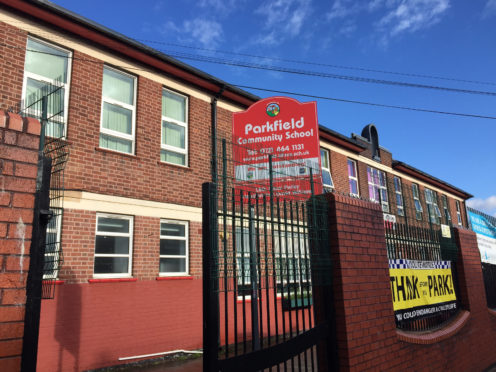I guess there’s no harm in a little splenetic, foaming-at-the-mouth rage now and then when trying to reduce the blood pressure.
I have, in my time, interviewed a few pros in the field. Writer and restaurant critic, Giles Coren, for example, once told me he broke his hand in temper, though I forget why. It could have been his objections to Poles, fat people, dog shit, wheelie luggage, vegetarianism or possibly his fury with sub-editors who changed his words. After the hand breakage (on an inanimate object, not person, thankfully) he wrote a book called “Anger Management”. As I recall, he had the credentials for at least half of that title.
Then there was the Today programme’s John Humphrys, whose idea of a cosy interview over dinner is to peck relentlessly until his interrogator is reduced to a twitching cadaver over the sea bass; or Rhona Cameron who manages to make the offer of a cup of tea and a custard cream sound like she is offering to chib you up a dark alley of a Saturday night.
So yes, we have plenty of precedence for British bulldogs but honestly, when did we all get so bloody angry all the time? It seems like we’re in a continual state of incandescent rage over something or other, our vocabulary littered with “how dare you” ire.
Watching events unfold at Parkfield community school in Saltley, Birmingham over the last few months has been particularly dispiriting.
The school developed a social education programme called “No Outsiders”. Not much to object to there, you wouldn’t have thought, teaching children about inclusion and respect. A positive twist on the long line of insulting “NOs” that our culture has imposed at various points in history. No Jews. No Blacks. No Irish. No wheelchairs. No women. No Papes. No Poofs. No, no, no.
The “No Outsiders” programme dared to teach children about LGBT issues and hundreds of parents were angry enough to withdraw their kids for the day in protest. Ofsted inspectors approved the material as “age appropriate”. Parents still fumed that it “promoted” same-sex relationships. Such fear of knowledge!
Since when has information equalled affirmation? Are we really daft enough to think that a heterosexual child will suddenly decide to be homosexual because Miss Smith in Primary 6 says it’s okay to be gay? It certainly doesn’t work the other way round: gay children who grow up in a straight environment don’t say, “I think I’ll just be like mummy and daddy, thanks.”
In Scotland, we have much to be proud of when it comes to inclusion, with the country being named in 2016 by a human rights charity as the best in Europe for LGBT legal equality. Last year, education minister John Swinney announced we would be the first country in the world to compulsorily include LGBT issues in the curriculum saying: “human rights and the values of respect and tolerance are universal.” No exceptions.
But even in Scotland, offences on the grounds of sexual orientation are the second most common form of hate crime after racial crime, with rises in recorded incidents every year since 2010.
As a journalist, you are often privileged to step inside worlds and lives that you would never normally have access to. Writing on a number of occasions about the LGBT community over the years opened my eyes so forcefully that I wrote a novel about it.
I encountered lives that far from being about some sleazy, Rocky Horror Show titillation were actually full of pain, turmoil, love – and remarkable courage. Their stories had nothing to do with sex and everything to do with identity, and they were hallmarked by the despair of isolation and repeated suicide attempts. Those lives demanded respect and understanding. They demanded education like “No Outsiders”.
Alas, it feels sometimes as if our society is going into reverse gear. Even the impending disaster of…oh I can’t even bring myself to write the word. Okay then. Brexit. The impending disaster of Brexit seems to me fuelled by anger, fear and insularity. Never mind that the emerging mass of graduates of China and India will swamp the world economy, the Brits are somehow going it alone. Education and research, foreign travel, business…all our economic and cultural connections with Europe severed or strained. Will it be – once again – too expensive to travel to Paris or Rome? Will we just stand on the beaches singing a quick chorus of Rule Britannia instead? Johnny Foreigner Keep Out.
Our national political life is marred by ugly anti-Semitism rows and anti-European rhetoric, our social life by hostility to others who are “different”. No apology necessary.
In some small way, the Birmingham backlash against the LGBT community epitomises this trend. It’s an attack on what education should be: a broadening of the mind; a sense of enquiry; an acceptance of difference. It’s ignorant. Illogical. A horrible vortex that gets increasingly fast and narrow.
Blimey. Does this sound angry? I beg your pardon – but it reduced my blood pressure.
Catherine Deveney is an award-winning investigative journalist, novelist and television presenter










